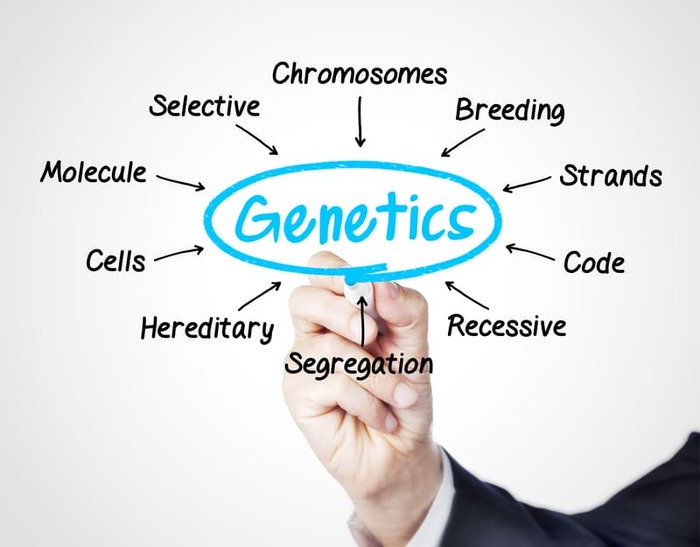- Calls to this hotline are currently being directed to Within Health or Eating Disorder Solutions
- Representatives are standing by 24/7 to help answer your questions
- All calls are confidential and HIPAA compliant
- There is no obligation or cost to call
- Eating Disorder Hope does not receive any commissions or fees dependent upon which provider you select
- Additional treatment providers are located on our directory or samhsa.gov
Are OCD and Eating Disorders Related?
Someone is dealing with co-occurring disorders when they have more than one condition at a time. In order to recover, most people need to treat both conditions as they can often feed into each other or overlap.
This gets complicated when one disorder looks very similar to another—it can be difficult to tease apart. This is often the case with OCD and eating disorders.
What is OCD?
Obsessive-compulsive disorder (OCD) is a mental health condition. Someone is diagnosed with OCD when they deal with chronic and long-lasting obsessions and compulsions [1].
An obsession is an uncontrollable, repetitive thought. Someone with OCD deals with obsession by doing certain behaviors over and over. These behaviors are known as compulsions. For example, someone may have an extreme fear of germs. To deal with this fear, they might wash their hands excessively.
What are Common Obsessive Compulsive Disorder Symptoms?
As mentioned earlier, someone with OCD has a cycle of obsessions and compulsions. There are common obsessions that people with OCD tend to have. These include:
- Fear of germs or contamination
- Disturbing or taboo thoughts about sex, religion, or harm
- Aggressive thoughts towards others or self
- Needing things to be symmetrical or perfectly organized [1]
Some common compulsions are:
- Extreme cleaning or hand washing
- Needing to organize things in a very particular way
- Repeatedly checking on things. For example, checking over and over to make sure the door is locked
- Compulsive counting [1].
While compulsions and obsessions are the two main symptoms of OCD. There are a few other symptoms. These include:
- Being unable to control their thoughts or behaviors, even if they know they’re extreme
- Thoughts or behaviors take up more than one hour of a person’s day
- Rituals or behaviors are not enjoyable, but provide short-term relief from the obsessive thoughts
- Significant impairment in their ability to function in work, school, in relationships, or ability to perform basic tasks because of these thoughts and behaviors
- Avoiding situations that trigger their obsessions. For example, someone who obsesses about germs may avoid going outside [1]
What is OCD Caused By?
It’s somewhat impossible to know exactly what causes each person to have OCD. This is because each person’s genetics and life experiences are different. Some possible causes of OCD are:
- Genetics- Research shows that people who have a parent, sibling, or child who has OCD are more likely to have OCD as well.
- Brain structure and functioning- Some people with OCD have differences in their brain structure. Researchers are still trying to figure out what causes these changes.
- Environment- OCD is connected to childhood trauma. OCD is also linked to certain bacterial infections in childhood, such as streptococcal infection [1].
Can OCD Cause an Eating Disorder?
Researchers don’t know what singlehandedly causes an eating disorder. It’s more likely that OCD symptoms can look similar to eating disorder symptoms. Even though OCD and eating disorders co-occur often, there hasn’t been a lot of research about this.
It can be difficult to tell these two conditions apart, which is why healthcare professionals have to carefully assess to see what is causing someone’s symptoms. As more research looks into the relationship between OCD and disordered eating, we should understand more about the link between these disorders.
Related Reading
- Dual Diagnosis & Occurring Disorders
- OCD
- What is Atypical Anorexia Nervosa: Symptoms, Causes and Treatment
- Substance Abuse
OCD and Anorexia
Anorexia is an eating disorder in which someone has the following symptoms:
- Significantly low body weight or inability to maintain a healthy weight
- Intense fear of gaining weight or becoming fat
- Lack of understanding for the severity of their problem
- Significant influence of their body weight or shape on their self-esteem
Someone with OCD and anorexia might struggle with obsessive thoughts about food or weight and as a result, have food rituals that they use in order to manage their anxiety about food. For example, they might have to make their plate perfectly symmetrical.
OCD and Orthorexia
Orthorexia is not an officially recognized eating disorder diagnosis. However, eating disorder professionals are recognizing an ongoing pattern of obsessively healthy eating that is harmful for people.
Orthorexia tends to lead someone to become malnourished because they are severely restricting the types of food they eat or eliminating certain food groups. For example, people with orthorexia may cut out all carbs or sugars. Someone who has OCD and orthorexia might develop certain rituals about food in an attempt to manage their anxiety about food.
Is Body Dysmorphia OCD?
Body dysmorphia and OCD often go hand-in-hand. However, they’re different. They have different diagnostic criteria. While some people have talked about how body dysmorphic disorder may be a type of OCD, it currently isn’t categorized that way.
OCD and Binge Eating Disorder
It might seem difficult to differentiate between OCD and binge eating disorder (BDD). While there is a compulsive quality to BDD, it’s not the same as OCD. People with BDD compulsively eat large amounts of food and feel unable to stop themselves. While this may be a response to stress, binge eating Someone can certainly have OCD and BDD.
Obsessive Compulsive Disorder Statistics & Facts
There’s a lot to know about OCD. Here are some quick statistics:
- In the US, approximately 1% of adults have OCD
- In adults with OCD, about 50% of them were severely impaired
- More females deal with OCD than males
- People with eating disorders are more likely to have OCD than people without disordered eating
- OCD is a type of anxiety disorder
- 2-8% of people with OCD have eating disorders while 2-48% of people with eating disorders have OCD [2,3]
OCD and Eating Disorders Treatment Options
Medication
There are certain medications that are shown to be helpful for OCD. These medications are called selective serotonin reuptake inhibitors (SSRIs). Other medications that are shown to be helpful are antipsychotics [1].
Therapy
Certain types of therapy, such as Cognitive Behavioral Therapy (CBT) are known to be effective in treating OCD. There’s one CBT technique in particular that is used for OCD. This technique is called Exposure Response Prevention (ERP).
ERP is done by exposing someone to something that triggers their obsession. For someone who obsesses about germs, ERP sessions would have the person get their hands dirty and then prevent them from engaging in their compulsion.
It’s important to know that ERP gradually becomes more intense over time. ERP doesn’t begin with the most triggering situation, but rather builds to that as a person demonstrates an ability to cope. ERP is shown to be very effective in treating OCD [1].
Relapse Prevention and Aftercare Support
For people who have co-occurring eating disorders and OCD, there are certain relapse prevention techniques that might be helpful. These are:
- Planning to cope ahead. Know what your triggers are and figure out ways to cope with them ahead of time
- See a therapist. Some therapists will work with clients on a bimonthly or monthly basis after symptoms have stabilized. This can be helpful to have a therapist there to help you maintain your progress and boost your resilience
- Attending support groups for OCD or eating disorders
- Having a mindfulness practice
- Staying honest with your support system
- Staying consistent with your medication
- Limiting your social media to body-positive accounts as much as possible
- Practicing relaxation or stress management techniques
- Reflecting on relapses. Talk with a therapist to figure out what triggered the lapse and how to deal with a similar situation in the future
Resources:
[1] National Institute of Mental Health. (n.d). Obsessive-Compulsive Disorder. Retrieved August 31st, 2021 from https://www.nimh.nih.gov/health/topics/obsessive-compulsive-disorder-ocd [2] National Institute of Mental Health. (n.d). Statistics. Retrieved August 31st, 2021 from https://www.nimh.nih.gov/health/statistics/obsessive-compulsive-disorder-ocd#part_2581 [3] Kriegel, Bethany. (n.d). Eating Disorders and OCD: A Complicated Mix. Walden Behavioral Care. Retrieved August 31st, 2021 from https://www.waldeneatingdisorders.com/blog/eating-disorders-and-ocd-a-complicated-mix/ [4] Tyagi, H., Patel, R., Rughooputh, F., Abrahams, H., Watson, A.J., & Drummond, L. (2015). Comparative prevalence of eating disorders in obsessive-compulsive disorder and other anxiety disorders. Psychiatry Journal, 2015. 1-6.Author: Samantha Bothwell, BMFT
Page Last Updated & Reviewed By: Jacquelyn Ekern, MS, LPC on September 20, 2021
Published on EatingDisorderHope.com, Treatment Resources & Information on Eating Disorders


